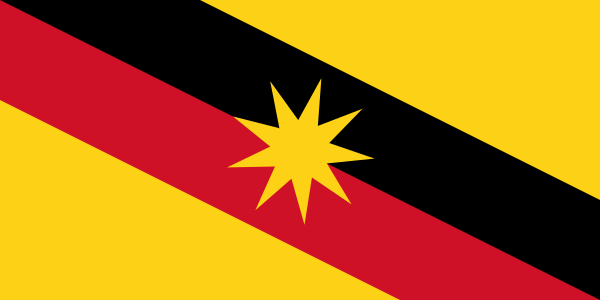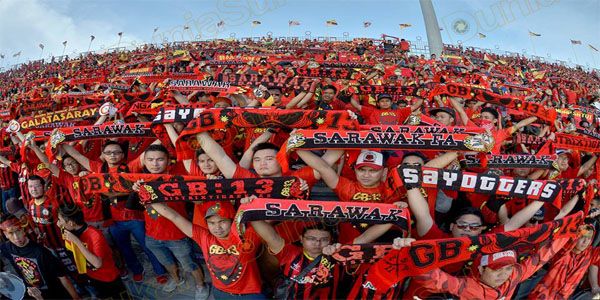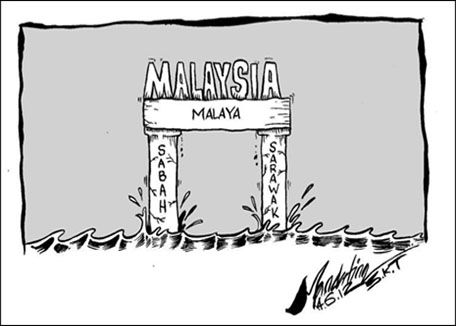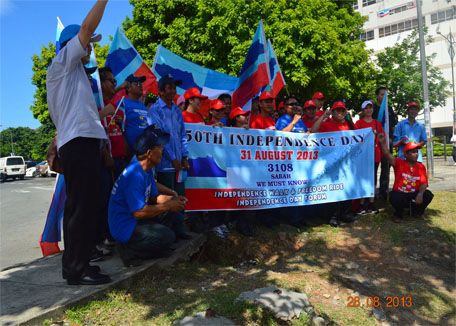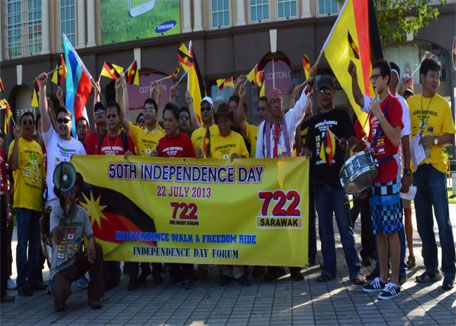Situation is ‘iri om iri’, says Jeffrey
|
|
Datuk Dr. Jeffrey Kitingan is the Chairman of STAR Sabah and State Assemblymen for N33, Bingkor, Sabah.
He also contested in P180, Keningau garnering 11900 strong votes
|
KOTA KINABALU: Ever since Jeffrey Kitingan returned to the Sabah Legislative Assembly after a lengthy absence, he has not failed to raise the political stakes as well as leave red faces in the august House by speaking his mind.
Some may call it brash and foolhardy, but Kitingan has never shied away from controversy and forcing people to think about uncomfortable truths.
The newly elected Bingkor assemblyman’s view of Sabah’s ruling elite is that they retain a subservient attitude to federal politicians in the peninsula and continue to tiptoe around important issues affecting the state rather than correct the imbalances.
That outspokenness has obviously not gone down well. Kitingan has raised the same issues over and over again but sadly the state government continues to ignore it again and again.
His favourite phrase to describe the situation comes from the Dusun expression “iri om iri” – which loosely translates as “it remains the same” – and a putdown of the Barisan Nasional coalition party leaders who boast of their accomplishments.
Kitingan has used the term to hammer home the message that there has been no change in the social condition of the majority of people in Sabah and the state government remains indifferent.
He first used the phrase in June during the first state assembly sitting after Sabah’s Barisan Nasional won the 13th general election, where he famously equated the conduct of the House to that of a cowshed.
None of the demands that have been raised such as a review of the oil royalty, transparency in Petronas, Borneonisation, the controversial Project IC and poverty, among others have been entertained in the state assembly sittings, he’s pointed out.
The government is unwilling to allow these issues to be debated, he said, because the ruling coalition politicians are worried about upsetting the federal government.
He explained how the state BN government was also refusing to debate the all important 1963 Malaysia Agreement even though it was well known that it had been subverted 40 years ago.
“What is the government’s effort to ensure that the Borneonisation programme is fully implemented? What is the government’s stand on the latest issue of transfer the Kadazandusun and Murut judges and magistrates to the peninsula? Isn’t this against the Borneonisation policy?”
“Instead, what we have here is ‘Sabah Palsu’ (Fake Sabah). Everything which has come into the state is fake. Fake IC, fake name like Harian Bte Duakali Lima, Donald Duck, Batman Bin Superman, fake nationality, fake teeth… everything is fake.
“What is not fake is hiring security guard and supplying him with (a) weapon, allowing the fake people to vote, rob and kill,” said Kitingan, who is also Sabah State Reform Party (STAR) chairman.
“No improvement at all, iri om iri,” he repeated when debating the budget at the state legislative assembly sitting last week.
Sabah dependent
While shying away from slamming Chief Minister Musa Aman’s administration, Kitingan nevertheless said he was “not impressed” with the state government’s performance in safeguarding the rights and dignity of Sabahans.
The state BN government fares no better on the issue of poverty eradication in the state which the coalition has had almost two decades in power to address, he said.
Kitingan noted how the state government did not seem to be aware that Sabah has become overwhelmingly dependent on the federal government for everything.
“Without us realizing it, we have surrendered away our autonomy power for the sake of position and privileges. It is no wonder we are still tagged as the poorest state in the country despite the huge budget in Sabah’s history,” he said.
According to official statistics, there are 42,400 poor households in Sabah, almost a four-fold increase compared to Sarawak’s 12,600, he noted adding that this was a shameful record for any government.
Poverty eradication, he added was not something for the government to boast about as was trumpeted from time to time by the state government but rather the duty of any responsible government.
Kitingan also downplayed Musa’s brag that the 2014 Budget was unprecedented in its size, saying the actual financial situation of the state government was nothing to be proud about given that the deficit of RM1.039 billion was the highest in Sabah’s history.
“The state’s financial situation is also not firm because it depends very much on two commodities namely palm oil sale (20%) and petroleum royalty (30.5%),” he said adding that the commodities are subject to the global market.
He also noted that the state’s revenue was decreasing and not increasing. In 2013, income was projected at RM3.828 billion while for next year it is forecast at RM3.583 billion.
Sabah’s debt will also increase from RM500 million to RM1 billion and this does not include its debt to the federal government, he added.
“To finance the debt using bonds and borrowing is bad financial management given the decrease in income and increase in expenditure.
“The state government actually has a lot of resources to improve its financial situation,” he said.
The solution to this financial quagmire is simple, he said and this is to demand back Sabah’s financial rights from the federal government.
In the villages here where it is commonly heard, the phrase “iri om iri” is usually accompanied by the rolling of eyes emphasising frustration at not being able to achieve something better.
If the previous Sabah Legislative Assembly sittings are any indication, there will be more eye rolling to come.
